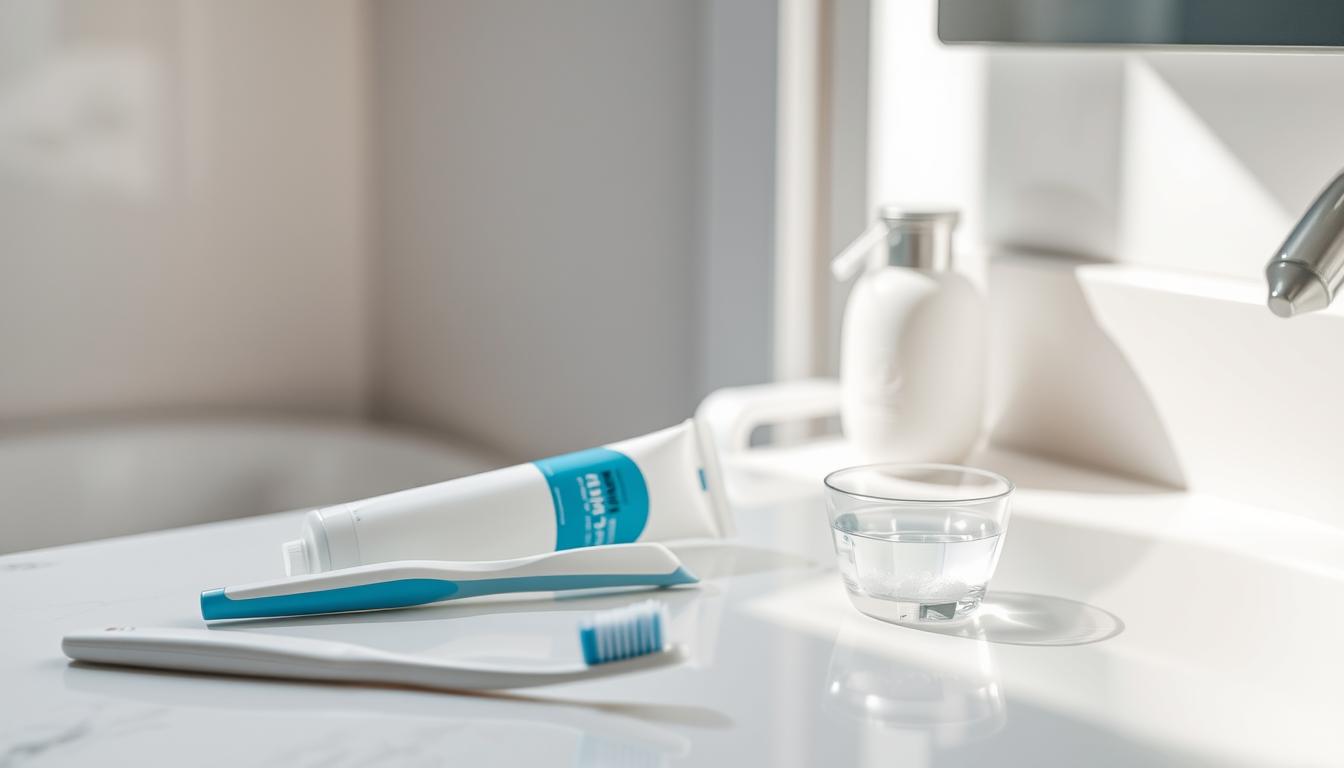
Proper oral hygiene is crucial after undergoing dental surgery to ensure a smooth and complication-free recovery. Post-surgery oral care plays a significant role in healing and preventing infection.
Following dental surgery, patients must adopt specific oral care practices to promote healing and minimize the risk of complications. This includes gentle brushing, rinsing with saltwater, and avoiding certain foods.
By understanding the best practices for oral care after dental surgery, individuals can facilitate their recovery and maintain good oral health. This article will outline the essential steps and recommendations for post-surgery oral care.
Immediate post-surgery oral care plays a significant role in healing and preventing complications. After dental surgery, it's essential to follow specific guidelines to manage pain, bleeding, and swelling effectively.
Managing pain is a critical aspect of the recovery process. Your dentist will likely prescribe pain medication to help alleviate discomfort. It's crucial to follow the prescribed dosage and not exceed the recommended amount.
Bleeding after surgery is normal, but it should be monitored closely. Bite down gently on the gauze pad placed by your dentist to help stop the bleeding. If bleeding persists, contact your dentist for further instructions.
Keeping your mouth clean after surgery is vital for preventing infection. Gently rinse your mouth with warm salt water 24 hours after surgery. Avoid brushing your teeth near the surgical site for the first few days.
Swelling is another common issue after dental surgery. Applying an ice pack to the affected area can help reduce swelling. Keep the ice pack on for 15-20 minutes, then remove it for 20-30 minutes. Repeat this process as needed.
By following these immediate post-surgery oral care guidelines, you can significantly contribute to a smooth and successful recovery. If you have any concerns or questions, don't hesitate to contact your dentist for guidance.
Effective oral care after dental surgery is vital for preventing infection and promoting healing. During the recovery period, it's essential to balance the need for cleanliness with the risk of irritating the surgical site.
Initially, your dentist will advise on the immediate post-surgery oral care guidelines, which typically include gentle rinsing with salt water and avoiding the use of straws or spitting forcefully. As you progress beyond the initial recovery phase, you can gradually resume your normal oral hygiene practices.
Flossing is an essential part of oral hygiene, but after dental surgery, it's crucial to wait until your dentist advises that it's safe to resume flossing. This is usually after the initial healing phase, when the risk of dislodging the blood clot or irritating the surgical site has decreased.
When resuming flossing, be gentle around the surgical area. You may need to use modified flossing techniques to avoid direct contact with the sensitive area.
To floss safely after dental surgery, you can use a floss threader or interdental brushes to clean around the surgical site without causing irritation. It's also advisable to use a gentle sawing motion rather than snapping the floss into place, which can dislodge the healing tissue.
Your dentist may also recommend using an antiseptic mouthwash to help reduce the risk of infection. By following these guidelines and maintaining good oral hygiene, you can ensure a smooth and uncomplicated recovery after dental surgery.
The food you eat after dental surgery can significantly impact your healing journey. Consuming the right foods can support your recovery, while a poor diet may hinder the healing process.
After dental surgery, it's essential to focus on nutrient-rich foods that are easy to chew and swallow. Opt for soft, gentle foods like yogurt, scrambled eggs, and mashed potatoes. These foods are not only comfortable to eat but also provide the necessary nutrients for healing.
In contrast, certain foods can irritate the surgical site or be difficult to chew, potentially complicating the recovery. Avoid hot, spicy, or sharp foods like chips or crackers, as they can cause discomfort or injury to the surgical area.
Staying hydrated is also crucial for optimal healing. Drink plenty of water throughout the day to help your body recover. Additionally, consider incorporating nutrient-dense foods or supplements, as recommended by your dentist or healthcare provider, to support your recovery.
By making informed dietary choices, you can significantly enhance your body's ability to heal after dental surgery, supporting Best Oral Care Practices After Dental Surgery and promoting a smooth post-surgery oral care routine.
Understanding the dental surgery recovery timeline can help patients manage their expectations and identify potential complications early. Generally, the initial healing process takes a few days to a week, during which oral hygiene after surgery plays a crucial role.
Patients typically experience some discomfort, swelling, and bruising in the first few days. As the body heals, these symptoms subside. It's essential to monitor the healing progress and contact the dentist if unusual symptoms persist or worsen.
If you experience severe pain, excessive bleeding, or signs of infection, such as fever or swelling that doesn't improve, it's crucial to reach out to your dentist promptly. They can assess the situation and provide guidance on the next steps for a smooth dental surgery recovery.
Maintaining good oral hygiene after surgery and following the dentist's instructions can significantly impact the recovery process. By being aware of what to expect and when to seek help, patients can ensure a successful recovery.